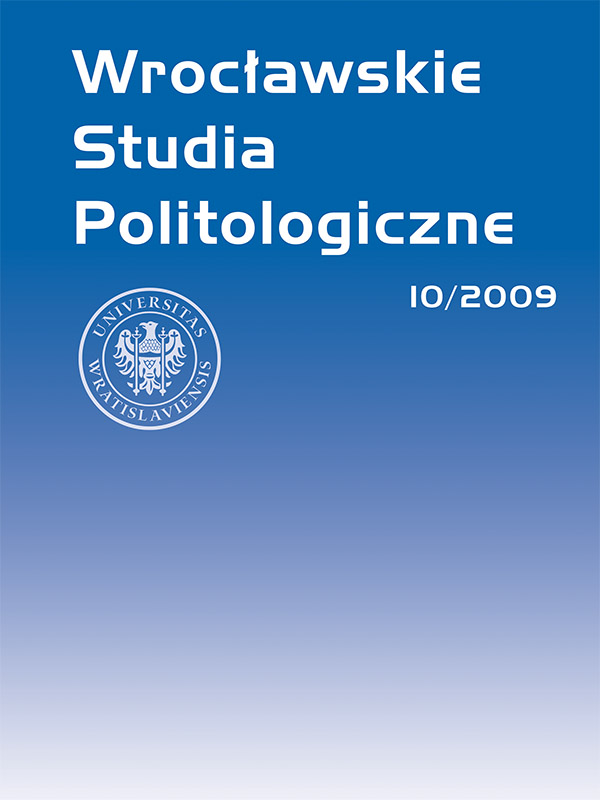

Artykuły

Change as the subject of research in the international relations science
In the international relations science, as in each scientific discipline, the foundation showing its scientific status is a good theoretical background. For a discipline with dynamic subject of research, with complicated, multi-level and multi-subject area of research, the explanatory function has special meaning. One of the most important theoretical and methodological problems in the international relations science is the phenomenon of “change”, consequences, which it bears for states, their identity, foreign policy, international order, security, etc., and the basic contents in the catalogue of important problems in this discipline. Therefore, questions being in close relation with this category, concerning following issues, are so important. Questions set in the article are basically the questions about theoretical identity, explanatory efficiency and scope of research in the international relations science, undertaken attempts of answering them show special complexity of the subject of research, controversy around subjective scope of research and research methods.
As in each scientific discipline, surely in such one, which research field is the subject to unseen dynamic of changes, it is both about number of international relations participants, and their diverse political and legal status, potential and power of influence. It actuates the scale of interaction between them, creates new forms and kinds of international connections, changes the structure of international order, releases phenomena unknown in the past. “Change”, “changeability” – term difficult to be unambiguously defined, not only on the ground of international relations science – maybe this is metaphor of all incomprehensible processes and phenomena from the world of politics including international and foreign, which objective is getting to know causative power of these changes, their dynamics, directions and consequences. However, it always symbolises movement, as a result of which there always becomes something new, unknown, there appears new participant of the international relations, the international system structure changes, there appear new institutions, new rules of proceedings, new systems of valuing, etc. “Change” is perceived also as a specifi c metaphor of transformations occurring in the international system. In this understanding, it is closely connected with such notions as “chaos”, “turbulence”, “stability”, “balance”, “global governance,” “glocalisation”, meaning particular phases or stages of its evolution, as well as determined mechanisms and rights valid in each of them. As it was mentioned before, “change” as phenomenon permanently inscribed in the international relations may concern many elements; international order, its structure, actors and their attributes, norms and principles valid in the international relations, hierarchy of importance of organisational forms in the international system and importance of determinants of international relations subjects influence, new systems of values or restoring apparently invalid problems the rank of important for dynamic stability of international systems, as well as many other variables. It seems that the most spectacular symbol of changes, which occur in the international system “before our eyes”, is clear distance of representatives of the post-positivist trend, especially constructionism, from material factors exposed by the neorealistic and partly neoliberal trend, influencing the international relations and actors functioning in it for the benefit of ideas, values, social context, in which international relations participants function, historical baggage of experiences, etc., and elements of cognition. What is interesting in this article are both questions asked by the author and the attempt to answer questions about research methods and tools, symbols and carriers of changes occurring in the field of international relations, in international systems, and last but not least – the purposefulness of determining these relevancies.